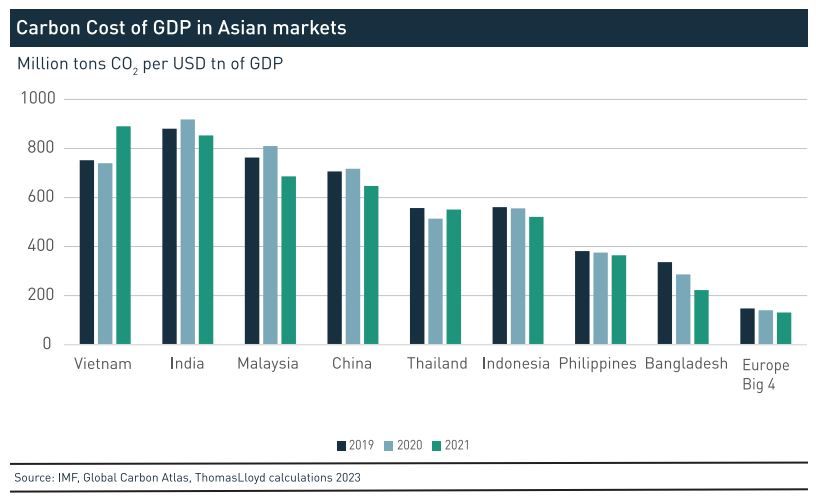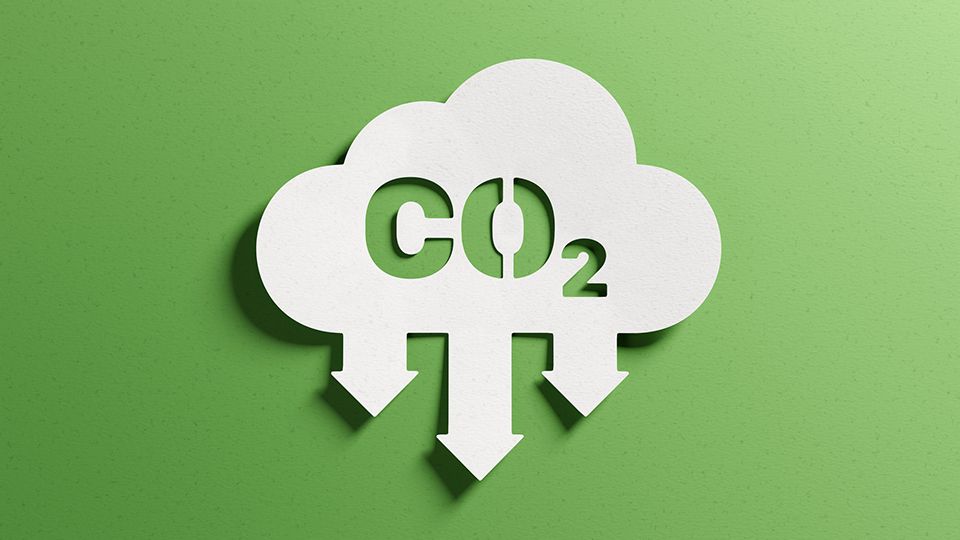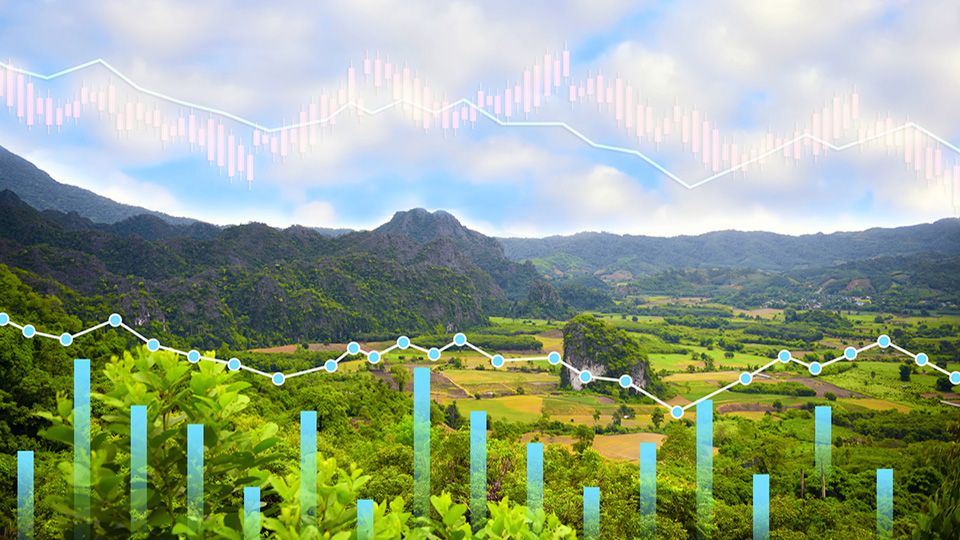The ‘carbon cost’ of GDP in Asia is almost four times higher than that of the four largest economies in Europe, a study by impact investor ThomasLloyd has found.
In its report, Carbon Cost of GDP: how investment in Asia can deliver the energy transition, the firm measured the amount of CO2 emitted for every trillion dollars of GDP generated, ranking the intensity of country emissions in the context of their economic output, rather than their population.
In China, CO2 emissions in 2021 rose from 10.9 billion tons to 11.4 billion tons. This was more than twice the level of the US, which rose from 4.7 billion tons to 5.0 billion tons. India remains in third place with 2.7 billion tons, with Russia and Japan completing the top five.
In fact, Asia produces more than half the world’s 37.12 billion tons of CO2 emissions with just eight of these countries accounting for 45% of total global CO2 emissions.
And while emissions have risen, so too have the intensity and consumption of emissions, despite this haven actually fallen in other regions such as Europe.
See also: – ‘Asia’s energy transition is of the utmost urgency’
Every one of the eight ‘emerging and developing economies’ in Asia has a greater carbon cost than any major economy in Western Europe; seven of the eight have a carbon cost of more than twice that of the largest Western European economy. For example, Vietnam’s carbon cost of 890 Mt per trillion dollars is the highest of all, ahead of India. Malaysia, China, Thailand, and Indonesia also have a carbon cost of GDP greater than 500 million tons.

“Through this report, we are able to identify where progress has been made, and where further interventions and investment are required,” said Nick Parsons, head of research at ThomasLloyd.
The firm said the report shows the need for major investment in climate infrastructure and renewable energy projects across Asia.







